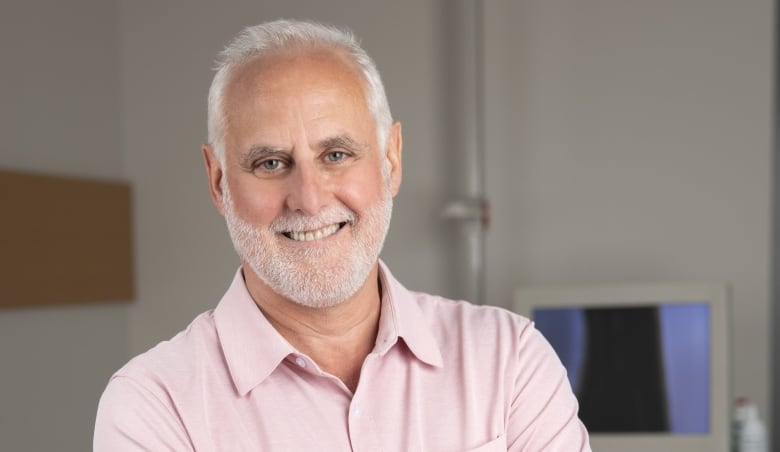Ozempic is everywhere and that’s triggering for people in recovery from eating disorders, specialists say

Ottawa Morning6:35Ozempic eating disorders
One of the things Sheryl Rasband learned as part of her recovery from anorexia was that she shouldn’t actively try to lose weight. That’s why she was a little taken aback when her psychiatrist suggested she might want to try Ozempic.
“I want to give him the benefit of the doubt because I was expressing my anxiety about my weight…. However, he knows my history,” she said.
The 40-year-old nurse and mother who lives in Utah County, Utah, has struggled with an eating disorder since she was 16, and said her weight has gone up and down since then.
When she was at her lowest point she had to be hospitalized and even temporarily lost custody of her children as a result, she said.
Now, after going through extensive treatment, Rasband said she feels much better mentally, even though she is technically obese according to her Body Mass Index. (BMI is a measurement that some doctors use to determine healthy weight, though it has been challenged as an indicator of health.)
“I feel like I am more healthy, more functional, more everything at this weight versus when I’m at a lower weight and I’m in and out of treatment and I am suicidal.”
People who work in the field of eating disorder treatment in Canada say what Rasband has experienced is happening in this country, too, and they are raising the alarm that their patients are being prescribed weight loss drugs without proper screening or counselling.
Risks for people with eating disorders
Anita Federici, a clinical psychologist adjunct professor at York University, has noticed this trend.
“My grave concern is a movement that I’m seeing where physicians are prescribing drugs like Ozempic to people with eating disorders, and … providing false education, that these are front-line treatments for things like binge-eating disorder or bulimia nervosa, which they are absolutely not,” said Federici, who has a PhD in psychology and is also a fellow of the Academy for Eating Disorders.

While there are no data to show how many of the 3.5 million Ozempic prescriptions written in Canada last year went to people who have history of eating disorders, Federici said that a number of her patients are on Ozempic and that she’s worried, not just about their mental well-being, but also their physical health.
Of particular concern are patients who have what is sometimes called “atypical anorexia,” she said, because although they might have a BMI that puts them in the category of overweight or obese, they are in fact starving themselves a lot of the time and are at risk of becoming malnourished if they use a weight loss drug.
“You’re medically compromised. And now the danger is that the person with, quote unquote, atypical anorexia or binge-eating disorder walks into the physician’s office and is increasingly being prescribed Ozempic,” said Federici.
‘Doctor-supervised starvation’
This is something that concerns clinical psychologist Jennifer Mills as well.
She’s a professor who studies eating disorders in the Department of Psychology at York University.
Mills said that a drug like Ozempic could even trigger an eating disorder in someone “who is predisposed to having that kind of reaction,” and that patients need to be carefully monitored during what is “almost like doctor-supervised starvation.”
She said there have been some documented cases where people who have had weight-loss surgery or taken weight loss drugs, where it’s triggered “an anorexia nervosa-like reaction.”
“Sometimes when people lose weight drastically, they can develop a distorted sense of what their bodies look like. It’s almost as if their brain has a hard time catching up to the physical weight loss, and … perhaps an excessive fear of gaining the weight back or not being thin enough,” said Mills, who has a PhD in psychology.

One issue, she said, is that doctors and psychologists don’t always agree on the best approach to weight loss.
For example, Mills says she believes that people can be healthy at any size and encourages her clients to adopt that perspective, too.
“I preach that to my patients and yet it is at odds with this kind of buzz and hysteria around a drug that makes it really easy to lose weight.”
A ‘valuable’ drug for some
But for doctors of patients with diabetes, weight loss can be a desired byproduct of using Ozempic.
“We have an obesity epidemic…. That’s why we have a diabetes epidemic,” said Dr. Stewart Harris.
He’s a professor in the Department of Family Medicine at Western University’s Schulich School of Medicine and Dentistry, and medical director of the primary care diabetes support program at Saint Joseph’s Health Care in London, Ont.
“From a purely clinical diabetes perspective [Ozempic] is a very valuable drug in … our toolbox.”

And, he said, Ozempic can even be safely prescribed to someone with an eating disorder if the proper precautions are taken.
“If I know … somebody has a binge-eating history or has mental health issues, I’m going to be much more judicious and careful as to whether I even initiate this therapeutic option, or how I’m going to do it or how I’m going to monitor them,” said Harris.
“I’m very selective and careful in all people that I put this therapy on, but especially in people that I’m concerned about where there may be more adverse outcomes associated with people’s eating disorders.”
He said he doesn’t want to point fingers but he knows not every doctor does this.
“You [can] just pop into a health promotion clinic that’s selling diets and other lifestyle and things … and they just off-the-cuff give you a prescription without knowing who you are and what your clinical history is…. Then I think that’s where people are running into trouble,” he said.
Columnists from CBC Radio6:31Body positivity and Ozempic
Sad and scared
Sheryl Rasband said she still isn’t sure whether she’s going to try Ozempic like her psychiatrist suggested.
Although she’s much happier living without an eating disorder, she’s not certain it won’t return with the pressure she feels to take weight-loss medication.
“It’s just so sad that it’s catching me after all of these things that my eating disorder has done, and it’s bringing it back.”
She’s also afraid that she is not the only one struggling with this difficult decision.
“If it has me questioning, and it has all these other people who are like me questioning what their values are and what their priorities are for this publicly pushed weight loss medication, I feel scared for the population at large.”




